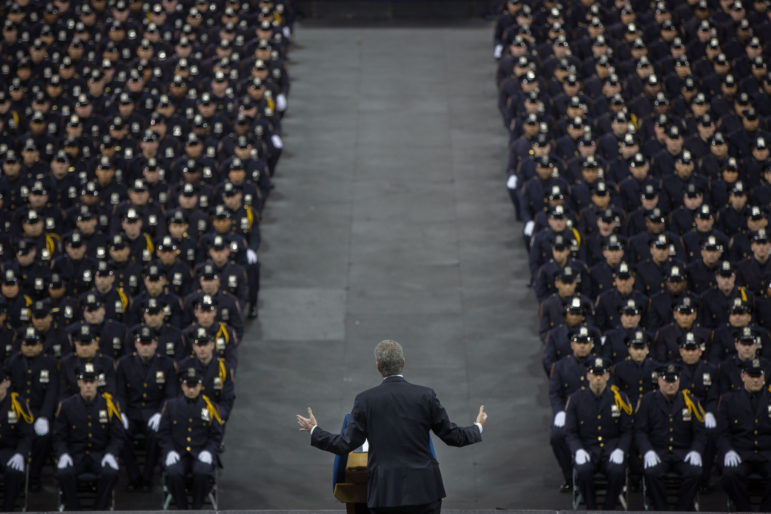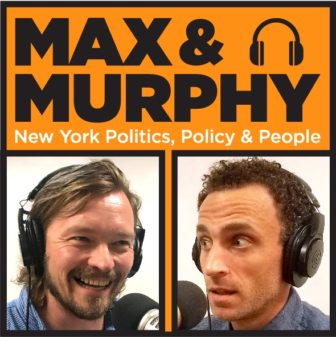New York City Candidates running for office this year must answer calls for fundamental reforms amid higher violence and a strapped city budget.

Mayor Photography Office
Mayor de Blasio addressing Police Academy graduates.On Wednesday night a police car sat at the corner of Hull Avenue and East 209th Street in the Norwood section of the Bronx, its red lights flashing in an alternating pattern, its presence not novel: The NYPD has sometimes stationed a car or floodlight there since the summer of 2015, when there were multiple shootings around the corner. In the past year, there have been at least three on the block.
Fifteen years ago, in 2006, there were 56 shootings in the 52nd precinct, which contains that corner. Compared with that, the 37 shootings in 2020 represents improvement. Against the 18 shootings in 2019, last year’s count indicates a doubling of gun violence in the area. In a nutshell, that’s the picture of violent crime in New York City over the past year: still lower than it was earlier this century, but on its way up.
That poses a challenge for candidates in the 2021 election. The conversation about whether and how to restructure policing, driven by the police killings that drove last year’s protests and the NYPD’s response to those demonstrations, is far from complete. It is continuing on the campaign trail against the backdrop of renewed concerns about crime.

The concerns are not mutually exclusive, but they are multidimensional. And there are very different takes on how to resolve them, as Wednesday’s guests on the Max & Murphy Show demonstrated.
“The way the ‘defund’ movement is going, we’re taking cops off the street,” said Richard Aborn, president of the Citizens Crime Commission. “So for instance, in New York, although now it’s beginning to be corrected during the height of the shooting crisis, we canceled two incoming classes of new police, which hurts the number of cops on the street. And more immediately we reduced the amount of overtime … that the cops use every single year and a very specific program to put more cops in the street at the very time we know shootings are going to rise, and that was all done in response to the ‘defund,’ the movement effort. So I think that was misguided.”
Aborn’s organization this week released a national policing reform plan that calls for implicit bias training, redefining the police force to a police service that hires people with a broader array of skillsets, focusing on improving the frontline management cops receive from sergeants and lieutenants, and other changes.
That’s not the kind of change Kesi Foster, an organizer representing the Communities United for Police Reform Action Fund and the Make the Road Action Fund, wants 2021 candidates to be talking about. Some campaigns, he said, have gotten the memo.
“We’re seeing, I think, platforms that are being developed by candidates that are influenced by the movement for police reform and accountability, so we’re seeing platforms now that are intentional in divesting and defunding from the police department,” he said. “If we’re going to get anywhere in this fight we have to reduce the size, scope and funding of police departments.”
“We still have a long long way to go before I think we can say we see marked shifts, particularly in the way communities of color are policed in New York City,” Foster added. “We have to absolutely significantly reduce the headcount of the NYPD.”
Hear more of our conversations about police reform and violence reduction below.









One thought on “Cops and Crime in the 2021 Campaign”
Compared to 2019 murders up 46.71%, burglaries up 43.54%, GLA up 66.43%. The burglary number should worry middle-class New Yorkers the most. If that burglary trend continues into 2021 we could see 22,000 burglaries in 2021, a 106% increase over 2019.
crime – http://u.pc.cd/qss